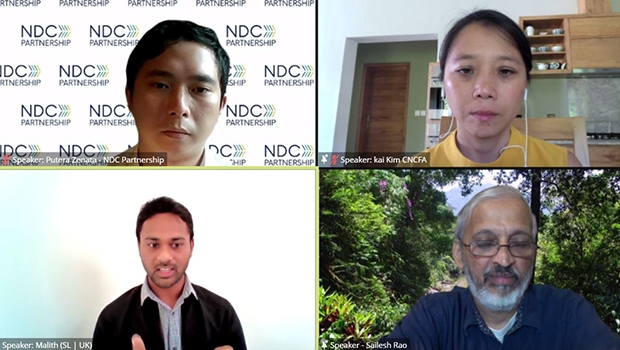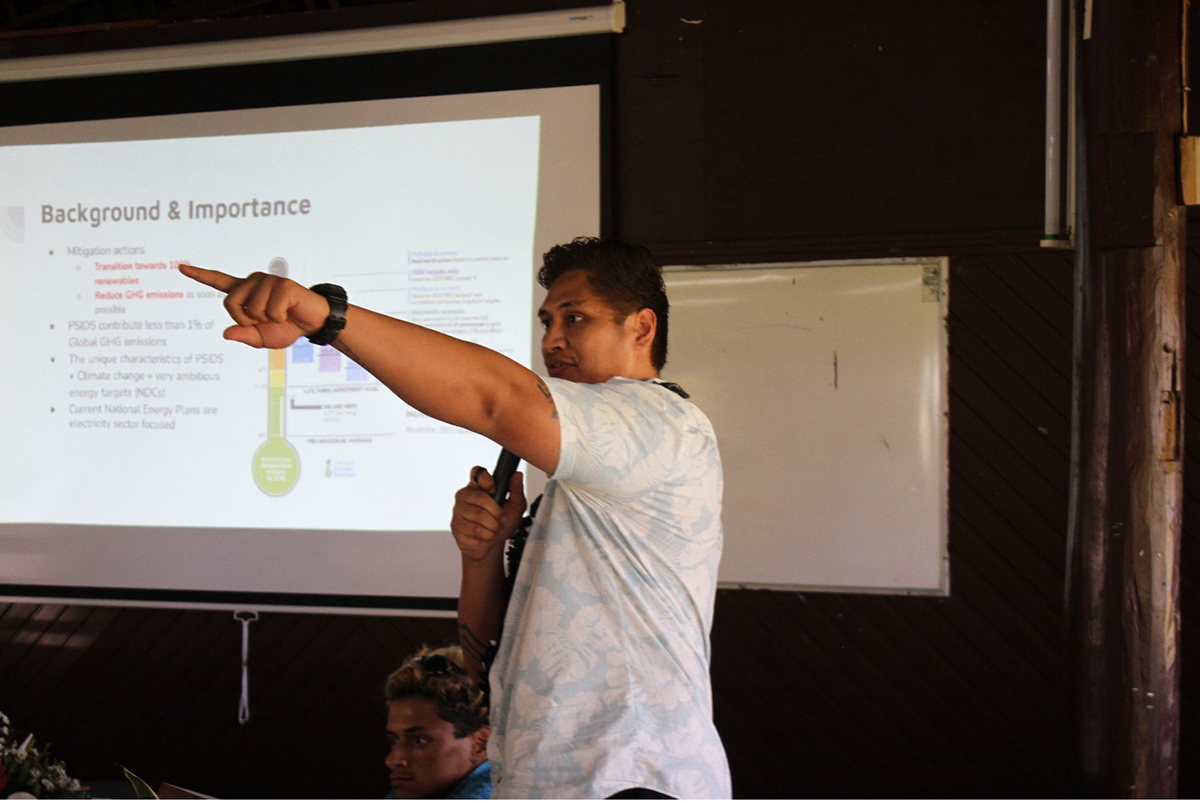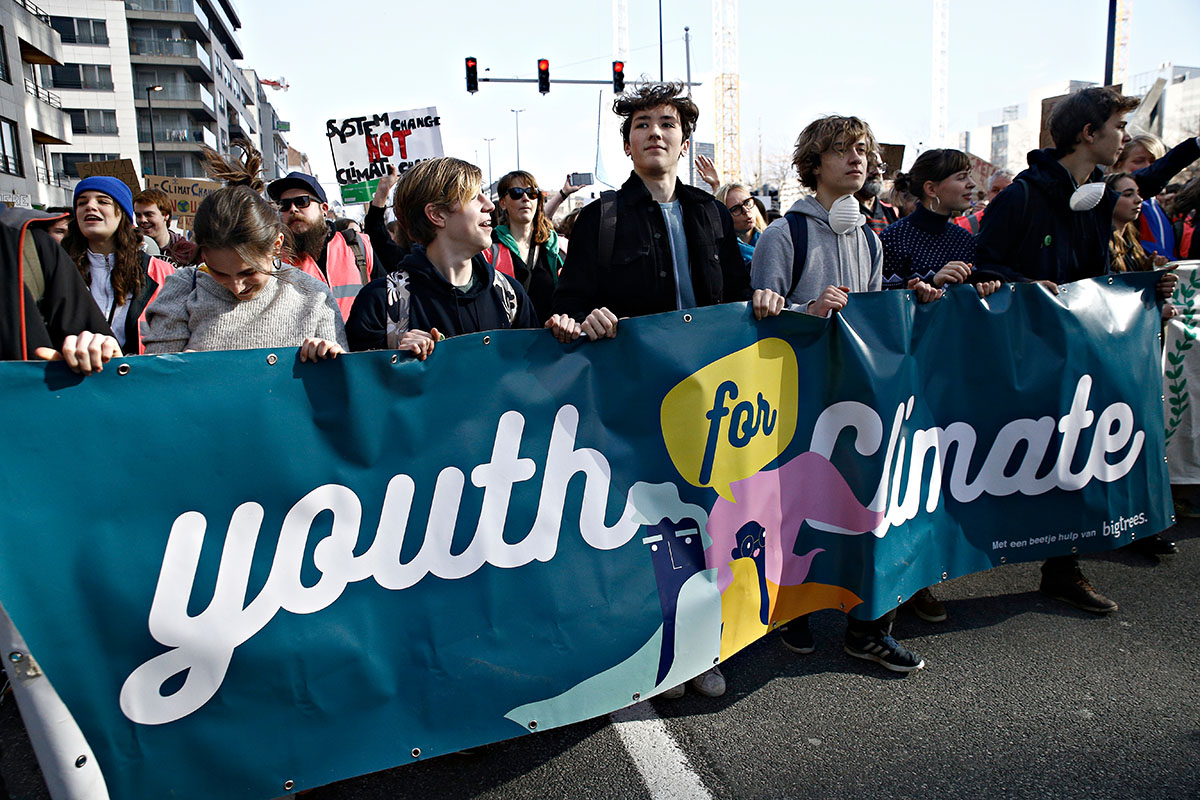Commonwealth Youth gearing up to lead COP26 discussions
October 27As the countdown to COP26 continues, young environmental activists and innovators, academics, experts and government officials from across the Commonwealth, joined a series of regional dialogues to help set the youth agenda at the conference.
Organised by the Commonwealth Youth Programme and the Commonwealth Youth Climate Change Network (CYCN) and supported by the Commonwealth Blue Charter, the Climate and Sustainability Summit gave young people a space to share their views on sustainable and localised climate change solutions, and climate impacts on health, gender equality and economies.
Head of Social Policy Development at the Commonwealth Secretariat, Layne Robinson, described the dialogue as crucial to helping the Commonwealth meet its commitment to youth participation and empowerment: “Our young people are the ones who will be forced to live with the chilling projections and predictions that are captured in recent climate change reports. Therefore, it is critical that they are at the forefront of this conversation about the survival of our planet.
“That is why we are standing strong with our growing youth networks and helping them to ensure that the youth perspective is not just represented, but actually makes a difference to the outcome of this COP.”
Ambition vs opportunity
Speaking on the first day of the Summit, which was focused on climate change adaptation projects in the Commonwealth, building resilience across small island development states (SIDS), and youth involvement in climate policy and research, innovator Ibnur Rashad declared: “People always say the sky is the limit, I disagree with that, I say your imagination is the limit.”
Rashad, who runs the Ground-up Innovation Labs for Development, which is designed to bridge the gaps between nature, technology, and communities, added: “I am hopeful that the solution to the world’s climate change is still hidden within the imagination of our young generations, so I think that the real solution is yet to emerge. Keep experimenting!”
At the same time, executive director of WEYE Clean Energy Co. Ltd and 2020 Commonwealth Young Person of the Year, Kakembo Galabuzi Brian, stressed the importance of funding and training. He said: “The biggest challenge is that many of the youth can’t access the finance or training to actually get their ideas further.”
Regional perspectives
Regional dialogues in Asia, Europe, Africa, the Caribbean and the Pacific on the second day of the Summit, allowed panellists to elaborate on specific climate crisis issues in their regions.
In the Pacific, the focus was on support for extremely vulnerable communities including SIDS – which represents 32 of the Commonwealth’s 54 countries.
Pointing to the frightening increase in cyclones in the region, Sagufta Janif, founder of The Fusion Hub and Bula-lance and 2020 Commonwealth Youth Awardee for the Pacific, said: “The most vulnerable communities are often neglected when it comes to capacity building opportunities or when it comes to involving them in important discussions and conversations that happen around climate change.”
While in the Caribbean, Adrian Watson, the Jamaican CEO of social enterprise start-up Honai Beez which uses beekeeping to combat climate change, highlighted environmental impacts on communities. Watson, whose own local community is affected by pollution from nearby dumps, said: “When you are talking about youth on the front line, for me that is a very literal thing and so you have to think about young people who are living in these degraded communities….”
In the Asia dialogue, the call was to share ideas and resources between countries. Commonwealth National Climate Finance Adviser for Seychelles, Kai Kim, spoke about good practices in the region which can be replicated.
“Nepal was one of the first countries to do national climate budget tagging, and Indonesia as well, so you will find that Asia was the region that led on this initiative, and this is now being adopted by more countries in the Indian, African and Pacific regions.”
Youth voice
More accountability amongst developed countries who are emitting the most pollution was top of the agenda for participants in the African dialogue.
Dr Mithika Mwenda, executive director for Pan African Climate Justice Alliance, said: “Africa should be the embodiment of climate justice because we are the continent that is the most vulnerable, most impacted, yet the least responsible for climate change.
He added: “We have no capacity, we have other competing priorities, we are the largest population living below poverty levels…. We need those who have caused the problem to address it.”
Key regional figures such as Dr Filimon Manoni, Deputy Secretary-General of the Pacific Islands Forum, were involved in the dialogues. Dr Manoni stressed: “It is your future that policymakers and decision-makers are striving to make the decisions about today. Your views are important.”
The conversation continues next week when the Commonwealth Youth Programme will host four youth-focused events at the COP26 conference in Glasgow.
Photo: Speakers during a virtual session of the Climate and Sustainability Summit
by Charlotte Barcham, Commonwealth Youth Programme




